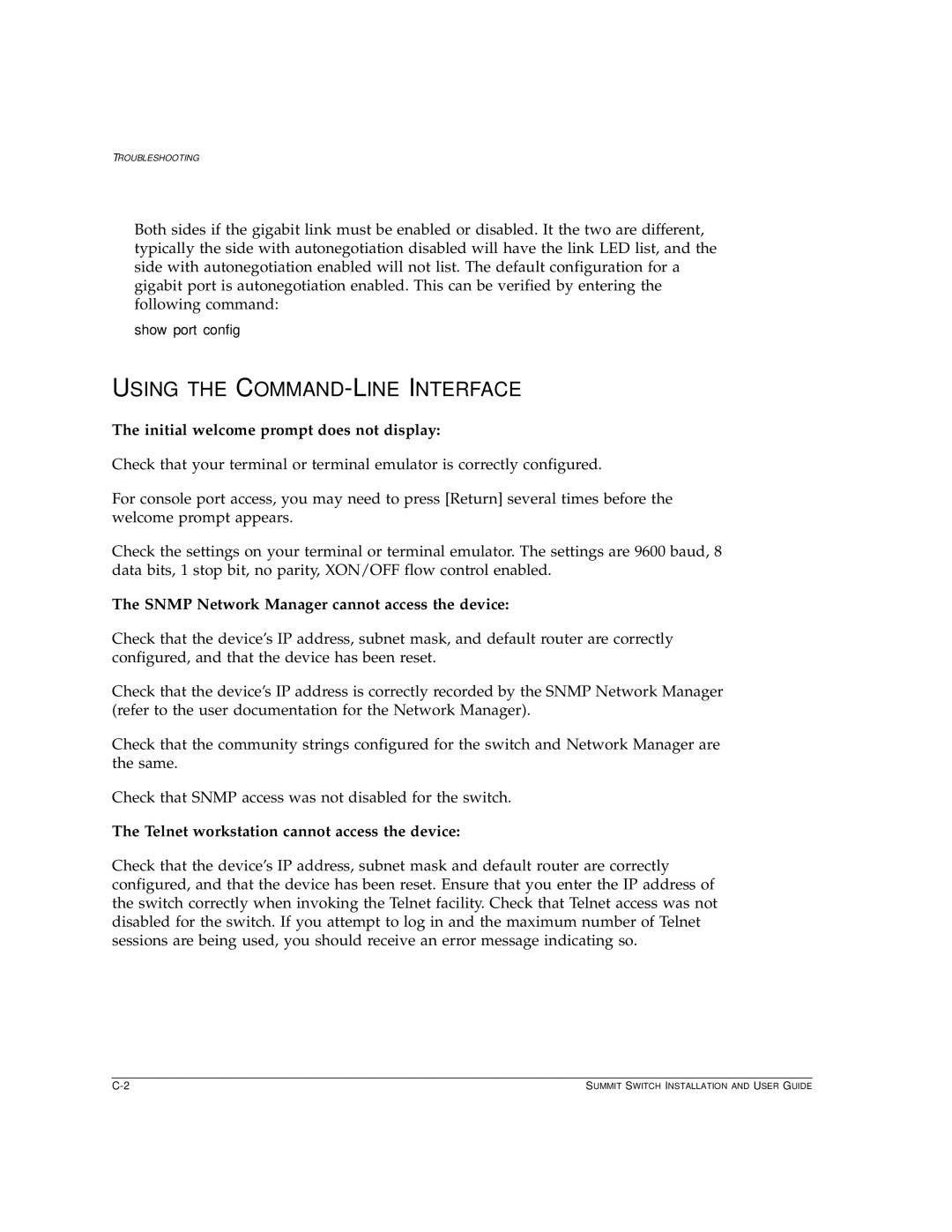TROUBLESHOOTING
Both sides if the gigabit link must be enabled or disabled. It the two are different, typically the side with autonegotiation disabled will have the link LED list, and the side with autonegotiation enabled will not list. The default configuration for a gigabit port is autonegotiation enabled. This can be verified by entering the following command:
show port config
USING THE COMMAND-LINE INTERFACE
The initial welcome prompt does not display:
Check that your terminal or terminal emulator is correctly configured.
For console port access, you may need to press [Return] several times before the welcome prompt appears.
Check the settings on your terminal or terminal emulator. The settings are 9600 baud, 8 data bits, 1 stop bit, no parity, XON/OFF flow control enabled.
The SNMP Network Manager cannot access the device:
Check that the device's IP address, subnet mask, and default router are correctly configured, and that the device has been reset.
Check that the device's IP address is correctly recorded by the SNMP Network Manager (refer to the user documentation for the Network Manager).
Check that the community strings configured for the switch and Network Manager are the same.
Check that SNMP access was not disabled for the switch.
The Telnet workstation cannot access the device:
Check that the device's IP address, subnet mask and default router are correctly configured, and that the device has been reset. Ensure that you enter the IP address of the switch correctly when invoking the Telnet facility. Check that Telnet access was not disabled for the switch. If you attempt to log in and the maximum number of Telnet sessions are being used, you should receive an error message indicating so.
SUMMIT SWITCH INSTALLATION AND USER GUIDE |
